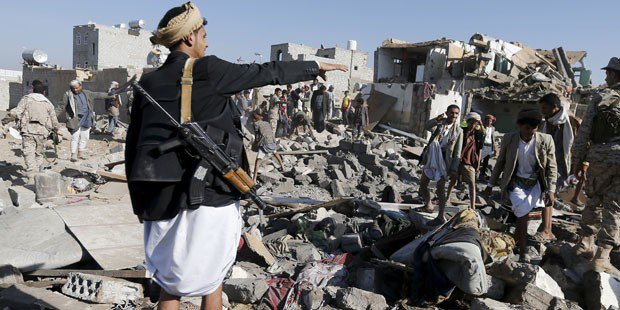Although Yemen is only a minor oil producer accounting for about 0.2 percent of the world’s oil production, recent bombing of the country by Saudi Arabia is taking place very near to the center of the global energy trade. Yemen borders with Saudi Arabia, the world’s biggest oil exporter, and is moreover located on Bab el-Mandeb, the fourth-biggest shipping chokepoint in the world by volume, used by oil tankers exporting crude from the Persian Gulf to the West. The country is of great significance precisely because of its strategic location both geographically and politically. The chokepoint connects the Red Sea with the Gulf of Aden and the Arabian Sea. Since the regional powers began bombing rebel targets in Yemen on Thursday, oil prices have increased by 5 percent.
Saudia Arabia, which is carrying out the strikes in support of the incumbent government, is bombing rebel targets of the Houthis, who are seen as tools of Shiite rival Iran. The majority of the Gulf’s population is Sunni Muslim. Many energy experts are afraid that the ongoing strikes could have a negative impact on the entire sector. “While thousands of barrels of oil from Yemen will not be noticed, millions from Saudi Arabia will matter,” John Vautrain, the head of Vautrain & Co. and a Singapore-based energy consultant, said. “Saudi Arabia has been concerned about unrest spreading from Yemen,” he added.
According to the US Energy Information Administration, Yemen produced about 133,000 barrels of oil a day in 2013, making it the 39th biggest producer globally. Its output peaked in 2001 when production reached more than 440,000 barrels a day. While the possibility of losing such volume does not jeopardize the global energy markets, a potential closure of the waterway could be a threat to oil transport and international shipping. Such a closure would prevent tankers from the Persian Gulf from reaching the Suez Canal and the SUMED Pipeline. This would divert vessels around Africa, which would have serious cost and time implications.




